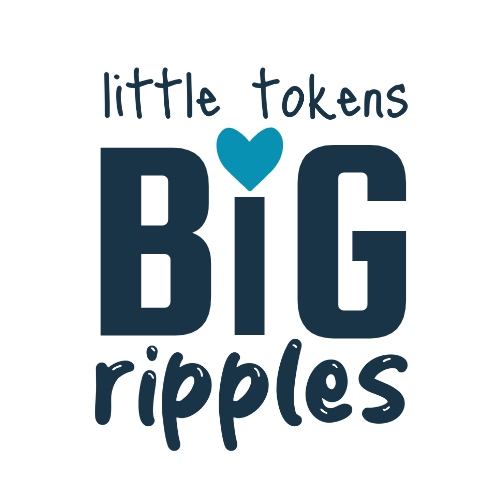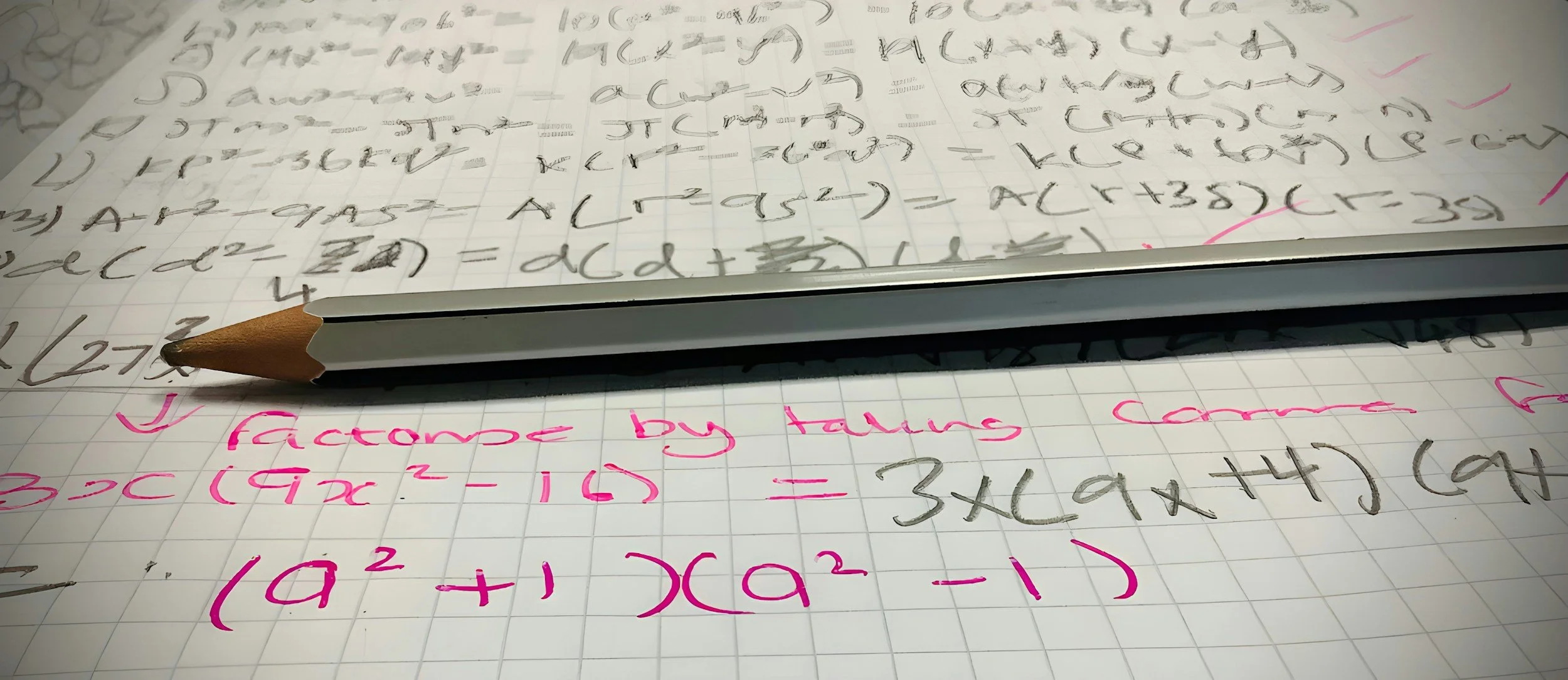When Challenge Becomes a Code Word for Worth
The multipurpose room was packed with parents for back-to-school night last evening. As I slid into a plastic chair, there was an air of anticipation and excitement. The sixth grade teachers were making a joint presentation on what to expect this year.
The grade level math teacher started talking about the various modules, parents leaned forward, phones out snapping photos of the slides, some taking notes. The teacher walked through “how to think about math” emphasizing that, more than anything else, students’ love for math and problem solving is what’s important.
Minutes later, the accelerated level math teacher shared his slides. The same parents, but I noticed the subtle shifts.
Postures straightening. A few knowing nods. One parent whispered to another, “This is going to be rigorous.”
My breathing grew shallow, pulse racing as I recognized a familiar scene: parents hanging on to every word about advanced placement, excellence, rigor. In that moment, I was both the anxious parent in the plastic chair and the young girl in my own middle school auditorium, hearing that “nothing less than an A was good enough.”
Three decades later, the weight of expectations still feels the same—only now I see it from both sides of the equation.
We had to represent our school well. We had to honor our parents’ sacrifices sending us to a prestigious all girls’ school. We had to make our teachers proud. It was all on our petite shoulders.
Conversations from different schools spilled into various WhatsApp groups last night. And they revealed an equal mix of anxiety and validation.
“Did you hear how much they’ll cover?”
“I’m worried the regular track won’t prepare her for high school.”
Some parents said: “It’s sad that even the accelerated kids will only be tested on the standard stuff.”
A parent asked me: “Do you know any good private math tutors since your daughter is coming from Montessori?”
The assumption that a regular track was somehow deficient. That my child needed to catch up, to prove herself worthy of the advanced track.
I didn’t just feel the pressure … I had lived it. And that made me wonder: were these conversations only about math placement or was this something deeper?
While we think we’re discussing academic placement, my gut says that beneath the surface lies a more fundamental question: How do we ensure our children will thrive in an uncertain future?
Math tracks become a proxy for opportunity, potential, and ultimately, worth. We grasp at these concrete decisions because they feel like something we can control in the face of overwhelming uncertainty about our children’s futures.
A parent mentions their sixth-grader’s academic track, and suddenly we’re all calculating:
Are we doing enough to prepare our children for a future we can’t predict?
How do we know if we’re doing right by them?
If we push them, are we loving them well?
If we let them be, are we denying them opportunities?
The answers feel urgent because the stakes feel so high.
We scan the landscape of what we think success looks like and try to reverse-engineer a path. Advanced math leads to calculus, which leads to competitive STEM programs, which leads to... and this is where I pause. What, exactly, does all of this lead to?
A good life? Security? Financial stability? Fulfillment, maybe? We’re not always sure, but the pathway feels concrete in a way that our fears about their future do not.
The Future We Can’t See
The sixth-graders navigating middle school today will enter a job market that doesn’t yet exist. The careers they’ll pursue, the problems they’ll solve, the ways they’ll contribute to the world—much of it is still being invented.
The specific academic pathway we’re agonizing over today may be entirely irrelevant to the life they actually live.
My high school elective was science. I have a bachelor’s degree in Psychology and English with Economics as a minor, a master’s degree in Journalism with a specialization in Health. And here I am: a full-time kindness instigator, creativity facilitator and parent.
Life isn’t a linear path … and if I’ve learned anything, it is that having a growth mindset lets me adapt, pivot, learn and masterfully execute whatever it is I need to do. And it comes from a place of inner confidence … a place I discovered in my mid-30’s.
So, my stance is that whether our children become engineers or artists, entrepreneurs or teachers, researchers or caregivers, they will need to know their own worth.
They will need resilience when they face setbacks, creativity when they encounter problems that don’t have predetermined solutions, and the confidence to trust their own judgment when the path forward isn’t clear.
I don’t think these qualities are built through any single academic track. They’re cultivated through the daily experience of being seen, valued, and loved—not for what they achieve, but for who they are. And that’s what they need a headstart on.
Different Lenses, Same Love
Let me be clear: I understand the parent advocating for acceleration. They see potential and want it nurtured, just as my own parents saw possibilities in me they desperately wanted fulfilled.
They understand that mastery builds confidence, that being appropriately challenged prevents boredom and disengagement. They may have experienced the frustration of being held back themselves, or witnessed opportunities lost due to inadequate preparation.
The difference lies not in the love, but in how we express it.
Similarly, I also understand the parent who prioritizes readiness and balance. They see the whole child—emotional, social, academic—and want all aspects of development honored.
They understand that confidence comes from solid foundations, that pressure too early can undermine long-term love of learning. They may carry memories of expectations that felt more overwhelming than empowering.
The challenge isn't choosing between academic growth and emotional wellbeing. Both matter.
The real question is how to pursue excellence without making it a measure of worth.
How do we encourage our children to stretch while ensuring they know their value doesn’t depend on the stretch?
Perhaps it’s in how we respond to both their successes and struggles … celebrating effort over outcome, curiosity over achievement, resilience over perfection.
Both perspectives emerge from love. Both carry wisdom. Both are informed by the parent’s own story of what helped them flourish or what caused them to struggle.
The Stories We Carry
We all bring our own childhoods to our parenting.
The parent who felt overlooked develops a keen eye for ensuring their child is seen and challenged.
The parent who felt overwhelmed by pressure—who remembers the weight of endless expectations— becomes hyper-attuned to signs of stress and overcommitment in their own child.
The parent who found validation through academic achievement may unconsciously equate challenge with value.
The parent who found their way through struggle believes in working hard for what you want.
The parent who struggled under pressure may deeply understand that worth exists independent of performance.
The parent who thrived with support believes in meeting children where they are.
Our own experiences don’t just shape our educational choices—they shape how we define success and worth itself. We’re all trying to give our children what we needed most in our own journeys.
None of these approaches is inherently superior. They’re different strategies for the same goal: raising a child who can navigate life with confidence and resilience.
What Actually Matters
In twenty years, when our sixth-graders are adults, what will have mattered most? Whether they took algebra in seventh or eighth grade? Or whether they learned to trust their own judgment, recover from disappointment, and find meaning in their work?
Whether they were in the accelerated track? Or whether they developed the curiosity and persistence to keep learning throughout their lives?
Whether they optimized their academic trajectory? Or whether they understood that their worth wasn’t contingent on their performance?
The parent focused on academic challenge and the parent focused on emotional readiness are both trying to give their child tools for success.
But, perhaps, the most important tool we can offer is the unshakeable knowledge that they are loved and valued exactly as they are—not as we hope they’ll become, not as we need them to be, but as they are right now, in this moment, regardless of which math class they’re in.
The Only Certainty
We don’t know what the world will demand of our children. We don’t know which skills will be obsolete and which will be essential. We don’t know if the pathways we’re carefully plotting will lead where we think they will.
But I think we can agree on this: a child who understands their inherent worth—not because we tell them, but because we show them through our actions and reactions, our celebrations and our silences—that child will be prepared for whatever future emerges.
They’ll have the emotional foundation to take risks, recover from failures, adapt to change, and find their own definition of a meaningful life.
I know this truth not just as a parent, but as someone who had to learn it the long way around.
Math is one subject. STEM is one path among many. But self-worth, resilience, and the capacity for joy—these are the fundamentals that will serve them regardless of which door they walk through.
XOXO
Mansi.






